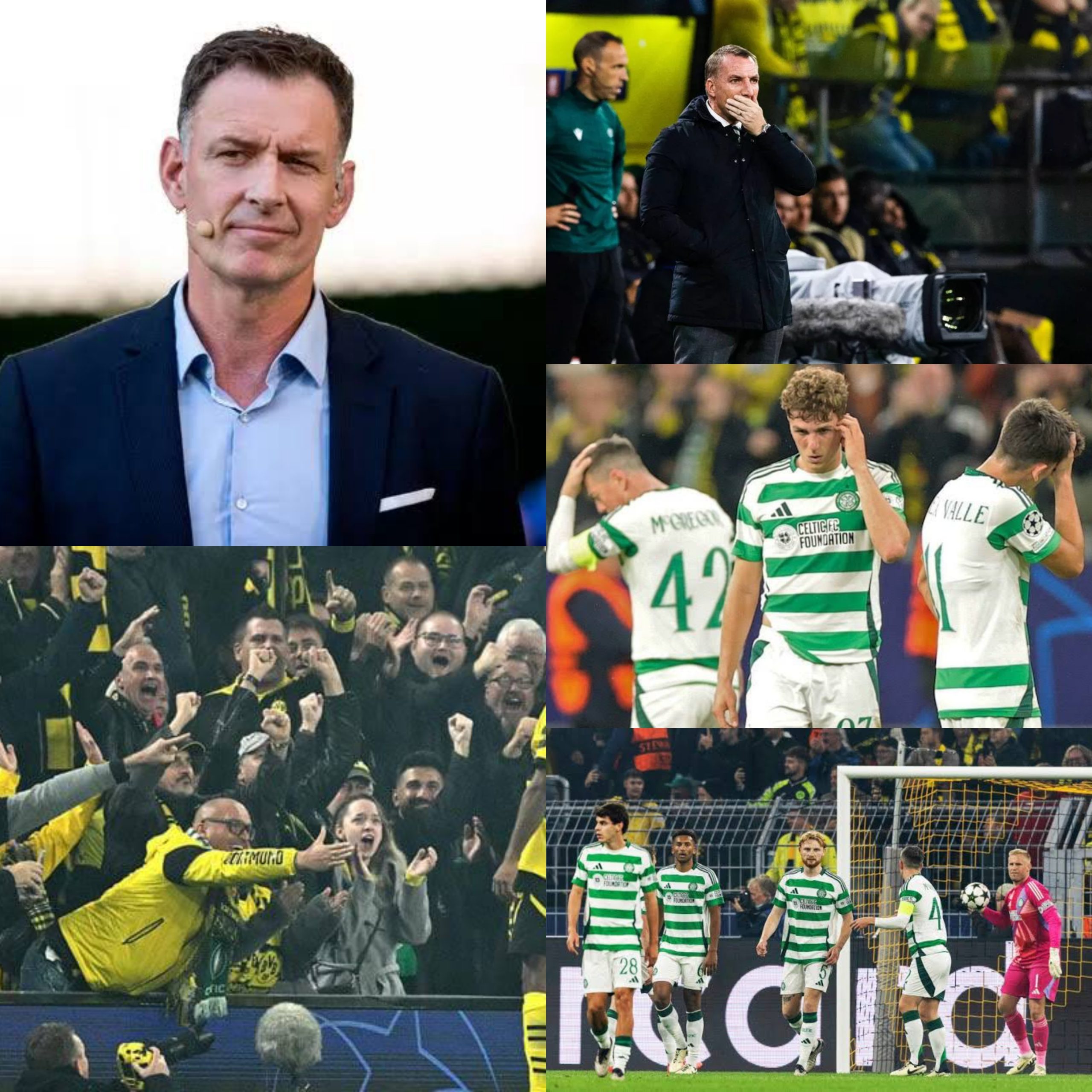Brendan Rodgers should not face harsh criticism for his positive approach against Dortmund; however, repeating the same offensive strategy could lead to consequences. The pressing question now is: What’s the next step for Celtic? It’s evident that Borussia dismantled Rodgers’ preferred tactics, and Callum McGregor’s insight hits the mark.
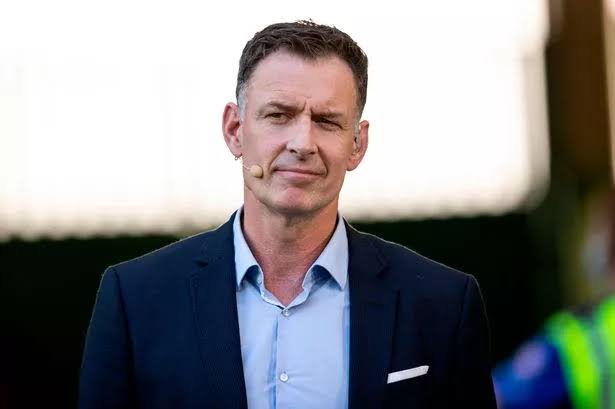
McGregor pointed out that Celtic, in their learning process, must recognize the need to adopt a more defensive approach when facing adversity during a match. The key takeaway from Tuesday’s match is the importance of knowing when to regroup and defend collectively.
Suffering a humiliating 7-1 defeat is a blow to any team and individual. As someone who experienced a similar defeat playing for Norwich against Blackburn in 1992, I know the sting all too well. It’s a pain you never want to endure again, and there are crucial lessons to be learned from how the game slipped away from Celtic in Germany.
While having a distinct football philosophy is commendable, Rodgers must be willing to adapt it based on the circumstances. Watching Unai Emery’s tactics against Bayern Munich at Villa Park showcased how adjusting one’s approach can lead to success even against formidable opponents.
In football, there are different levels of competition, and acknowledging the need to modify strategies against superior teams is crucial. Borussia, with their superior squad, outclassed Celtic, highlighting the importance of finding alternative methods to challenge stronger opponents.
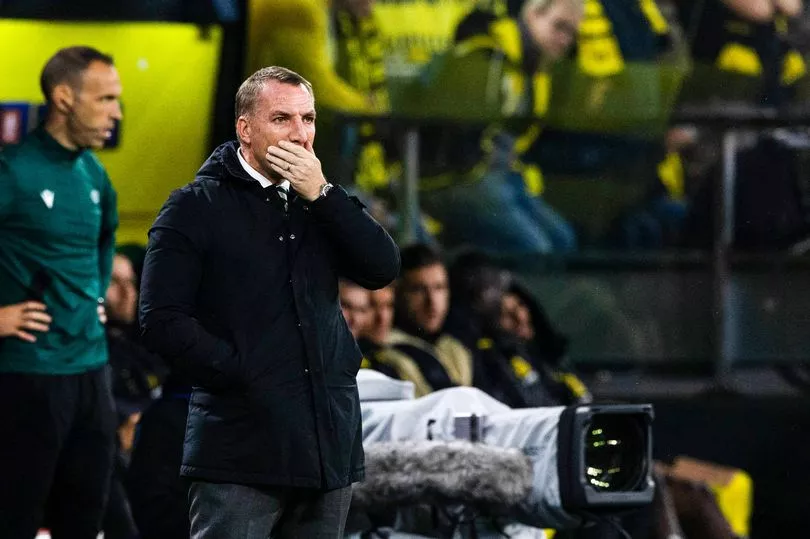
Looking ahead, there should be an acceptance that there are more effective ways to confront superior teams than what Celtic demonstrated in Dortmund. Despite the stark contrast in quality between domestic and European football, Rodgers’ decision to maintain a positive and aggressive style in Germany was understandable given their recent form and energy levels.
While Rodgers’ optimism is commendable, it’s essential for him and Celtic to be open to adjusting their approach in future encounters against high-caliber teams. Balancing positivity with adaptability will be key in navigating challenging fixtures and achieving better results.
He believed Celtic’s football could outshine Dortmund’s pressing, and vice versa—an argument open to debate in hindsight. However, what’s undeniable is how quickly it became apparent that Celtic couldn’t assert themselves; instead, the opposite trend was unfolding. Recognizing this pivotal moment and adapting during the game becomes crucial.
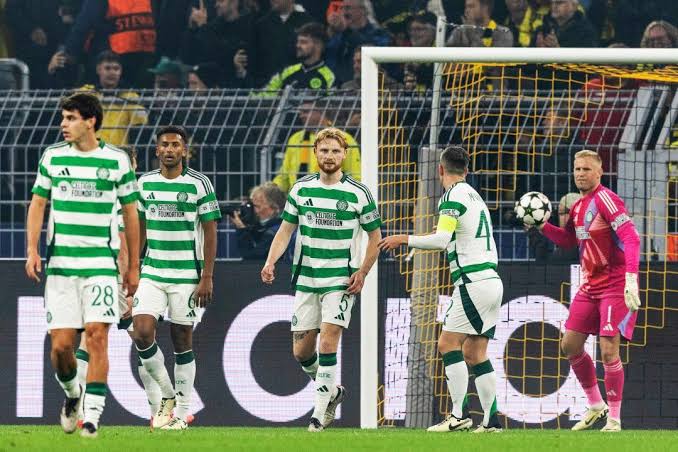
Listening to Rodgers post-match, it seemed he acknowledged the issue, but the players had lost their way during the painful initial period of decline, setting in motion an irreversible slide that needed addressing urgently.
Consider Arsenal as an example. While typically an aggressive, attacking side, they showed adaptability under Arteta when faced with adversity, as seen in a recent game against Manchester City with 10 men. They shifted their approach, opting to defend stoutly and nearly clinched a surprising victory by staying organized at the back.
Real Madrid, known for Champions League success, also adjust their tactics to weather storms when needed, demonstrating a willingness to soak up pressure to stay competitive. In contrast, Celtic against Borussia failed to respond effectively to the shifting momentum, persisting with ineffectual strategies despite worsening outcomes. Players must exhibit sharper, smarter play—adopting a gritty, disruptive style, disrupting opponents, rather than repeating the same errors.
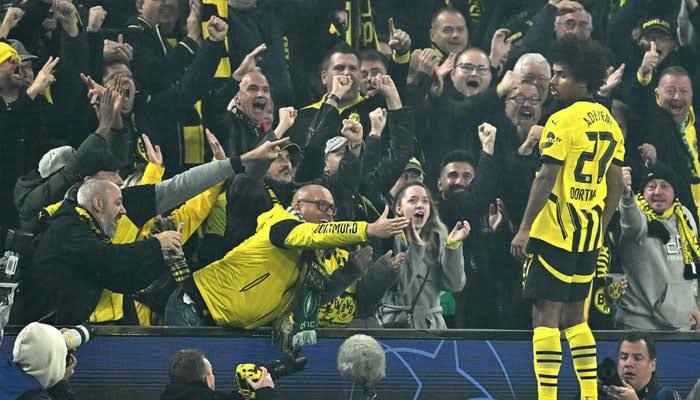
Rodgers was correct in noting Dortmund’s ruthlessness, a hallmark of top-tier Champions League play where conceding multiple goals isn’t uncommon for Celtic. The crucial step now is rectifying the issues without denting their confidence, leveraging lessons learned without abandoning their core principles entirely. Adaptation, pre- or in-game, to suit the circumstances is now expected.
While criticisms likening the Dortmund result to past defeats might have merit, it’s important to recognize the learning curve for this new team. It’s evident that Rodgers’ squad isn’t yet at the level to compete head-to-head with the elite. Criticism should be reserved for a failure to learn from mistakes rather than the initial acknowledgment of the team’s current limitations.
